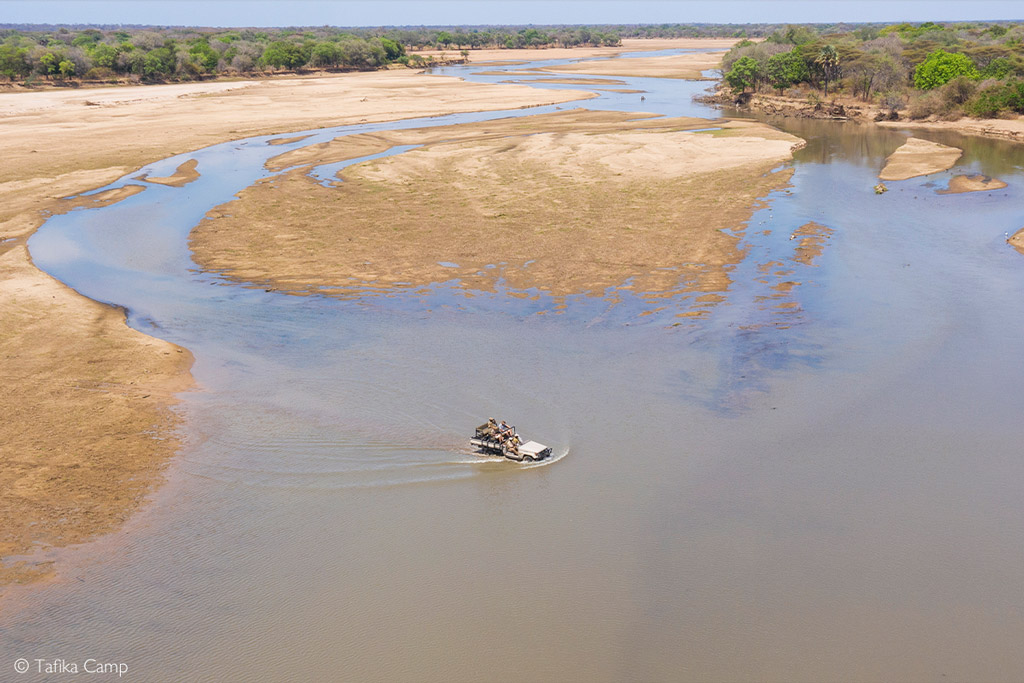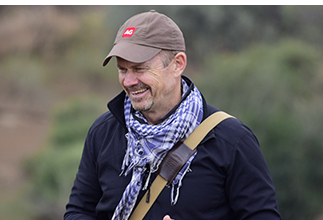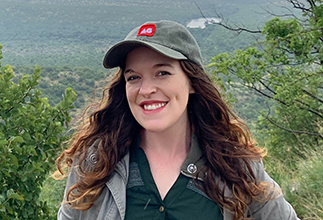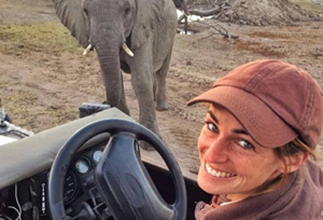
This is a copy of our weekly email newsletter. Subscribe here to receive the newsletter.
Bushveld dining + disappearing hornbills + insider safari tips

SO my editorial of last week stirred a few pots and affirmed what the experienced travellers amongst you were thinking. Thanks to all who emailed me or reached out via social media. I received some encouraging nods from safari industry dagga boys – much appreciated.
AT LAST, my beloved South Africa is phasing out the abusive captive lion breeding industry. There is currently a gazetted draft White Paper on the conservation and sustainable use of South Africa’s biodiversity in play, which will provide the overarching policy context to rid us of this evil industry. This process is being driven by the Department of Forestry, Fisheries and the Environment – and our Minister Barbara Creecy is a critical roleplayer in that regard. I can only imagine the pressure she is under from those who believe that any practice is ok if it produces money. Strength to you, Madam Minister!
I am currently on safari in Botswana – my beloved Khwai, to be precise – with our 2022 Photographer of the Year winners. Expect a celebratory gallery from us in a few weeks!
Keep the passion

Simon Espley – CEO, Africa Geographic
From our Editor – Taryn van Jaarsveld

Is there anything more magical than spending an evening dining under the stars in the African wilderness while being serenaded by the sounds of nocturnal creatures? Or taking a breather from an adventurous morning of Big 5 spotting to indulge in a scrumptious brunch under a giant baobab? This week we’re celebrating the wonders of dining out on safari with 15 of our favourite gastronomic bushveld experiences – check out our first story.
We’re also examining a distressing forecast for the yellow-billed hornbills of the Kalahari. Scientists have predicted that, due to rising temperatures, these hornbills will vanish from the area within the next five years. Read more on the impact climate change is having on this population of birds in our second story below.
Here’s to staying informed on developments throughout our beautiful continent, and finding ways that you can make a difference.
Happy celebrating Africa to you all!

From our Scientific Editor – Jamie Paterson

Did you know that there have been 13 fatal bear attacks in North America in the last two years? In all instances where the bear responsible could be identified (and occasionally even when it couldn’t), it was euthanised.
There has been another leopard incident in the Kruger region in South Africa. Sabi Sand Nature Reserve confirmed that a male leopard in “poor condition” seriously injured an employee. She was on the veranda of her residence at the time and had to be airlifted to the hospital. The leopard in question (believed to be the Nyeleti male) was put down. Given how unusual such attacks are (in southern Africa at least), it is pretty uncanny that this latest incident came on the heels of our article on leopard habituation in the Sabi Sands.
I raised the bear fact because I’ve been trying to put what seems like a spate of leopard-human conflicts into perspective for myself. It also shows that no matter where in the world it happens, when a predator behaves like a predator, it has tragic consequences for both people and the animal.
We all send our best wishes to the employee and hope for a full recovery.

Story 1
https://africageographic.com/stories/dine-out-in-the-bushveld/
BUSHVELD DINING
No African safari is complete without a dining experience out in the wilderness. Here are our favourite spots to enjoy dining in the bushveld
Story 2
https://africageographic.com/stories/five-years-until-the-kalaharis-hornbills-start-to-vanish/
DISAPPEARING HORNBILLS
Scientists have predicted that the Kalahari’s hornbills will start to vanish in five years – and climate change is to blame
 TRAVEL DESK UPDATES:
TRAVEL DESK UPDATES:
Best time to see wildlife in southern Africa? INSIDER TIP from our CEO: The later in the dry season you come on safari, the better the wildlife experience. No rain for many months means predictable watering points for thirsty animals and thin vegetation – both good for wildlife sightings. If you can stomach higher temperatures and you are after pure wildlife celebration, push it as late in the dry season as you can. September to November (before the rains arrive) is usually spectacular for wildlife encounters. This is when most safari-goers have gone home and when serious photographers are out there scoring those epic images we all love to see.
With that in mind, here are a few excellent hand-made packages for the coming months:
Affordable safari in South Luangwa – 5 days. This fantastic combo of walking and driving will appeal to experienced safari-goers and first-timers alike. Expect exceptional game viewing and tracking on foot, scrumptious bush breakfasts and unforgettable sundowners. Did we mention leopards?
Three rivers safari – 7 days. This classic safari takes you to three iconic African riverine settings and two countries: Victoria Falls on the mighty Zambezi River in Zimbabwe plus Botswana’s Chobe National Park on the shores of the broad, sluggish Chobe River, and Khwai on the eastern fringes of the Okavango Delta
 WATCH: Take a breather with BBC Earth and spend time unwinding at a waterhole in Mwiba Wildlife Reserve, Tanzania, as wildlife gathers to drink (27:40). Click here to watch
WATCH: Take a breather with BBC Earth and spend time unwinding at a waterhole in Mwiba Wildlife Reserve, Tanzania, as wildlife gathers to drink (27:40). Click here to watch
To comment on this story: Login (or sign up) to our app here - it's a troll-free safe place 🙂.![]()








